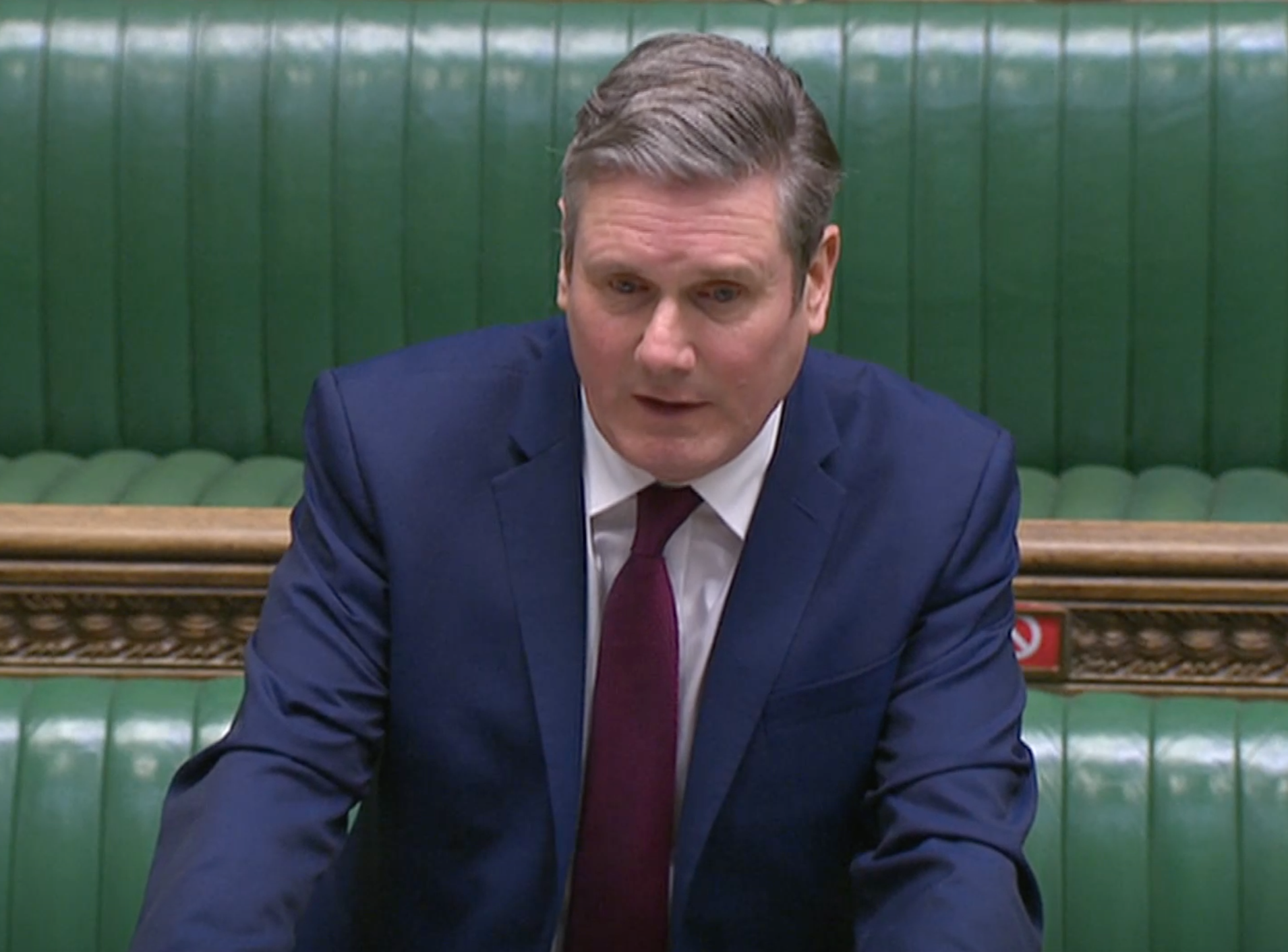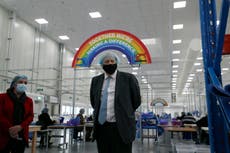Keir Starmer kept smiling when Boris Johnson refused to walk into his trap
The Labour leader thought he had a clever question, but, as John Rentoul writes, it was the prime minister who had the cleverer answer


Keir Starmer has been told to smile at Prime Minister’s Questions. I don’t know what effect it has on Boris Johnson, but it was rather alarming for us journalists in the press gallery.
The Labour leader was smiling to himself as he stood to ask his first question, so he looked as if he had a killer point up his sleeve. It turned out that he thought he did indeed have a clever question to ask. He welcomed the principles behind the coronavirus recovery plan, saying that caution and irreversibility were “plainly right”. But, he went on, the plan was threatened by people spreading “misinformation”, saying that the roadmap is based on “dodgy assumptions” and “false modelling”.
One of Johnson’s defences is that his blustery manner is really a form of poker face: it was impossible to tell whether he recognised those phrases from some of the anti-lockdowners on his own benches. If he didn’t recognise them, some political sixth sense saved him from falling into Starmer’s trap. The Labour leader was obviously hoping the prime minister would condemn conspiracy theorists and fake-news peddlers, whereupon Starmer could declare with a flourish: “All those comments came from his MPs, some of the 60 or so members of the Covid Recovery Group.”
But Johnson simply said that the roadmap would “set us on a cautious but irreversible journey towards freedom” and that he was glad Starmer supported it. Which meant that when Starmer revealed that it was Conservative MPs who said the Covid statistics “appear to have been manipulated” it was time for Angela Rayner, his deputy, supporting him from two metres away on the opposition front bench, to study her shoes.
That flat moment apart, it was a rowdier chamber than for a while. MPs may be beginning to discover that they can heckle and shout while wearing masks, and the speaker cannot be sure where the noise is coming from.
Starmer pointed out that three out of 10 people who should be isolating are not, and accused Johnson of failing to pay enough people £500 to encourage them to do so, saying: “People in low-paid jobs are at the bottom of this government’s priorities.”
At this point the exchanges became pure yah-boo panto, with Johnson insisting that, on the contrary, they were at the top. Starmer won that point with a low blow: “If you want £500 to isolate, you’re out of luck; if you’ve got the health secretary’s WhatsApp, you could have a million-pound contract.”
The return to traditional politics continued with the ritual exchange of selective statistics about council tax that has preceded every set of local elections since the Middle Ages. On the substance, there is no question about what is happening, which is that central government in the form of Rishi Sunak is forcing local government to put up council tax by an average of about 5 per cent. This allowed Starmer to declare: “Now is not the time for tax rises for families or businesses.” He is right on both the economics and the politics: tax rises in the depth of the post-coronavirus recession are a bad idea; and Labour ought to be a pro-business party.
But he managed to make his alternative – “to give our key workers the pay rise they deserve and to back British businesses by supporting 100,000 new start-ups” – sound dull. Johnson boisterously replied: “If he’ll only wait until next week, he’ll find we’ll do far more than that paltry agenda that he’s set out – far more.” Telling Starmer to wait until the Budget was always going to be the easy way out of any questions about taxing and spending.
For once, Johnson had a prepared line for his answer to Starmer’s last question that worked. He thanked Starmer for his support – “which has been so evanescent in the past” – and accused him of changing his mind: “He vacillates; we vaccinate.” It was a cheap shot and a silly play on words but for some reason it is devastatingly effective.
Starmer smiled as if he hadn’t a care in the world.



Join our commenting forum
Join thought-provoking conversations, follow other Independent readers and see their replies
Comments